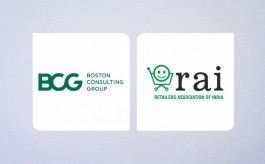Home » Viewpoints » Is the Future of Healthcare Retailing Online?
Is the Future of Healthcare Retailing Online?
By Dipanjan Mukherjee | July 25, 2013
Toby Desforges, Co Founder- engage, who also co-authored the book, "œThe Shopper Marketing Revolution' with Mike Anthony, talks about the virtual future of healthcare retailing.
 E-commerce has sparked a huge volume of column inches in the last few years, and many aspects of retailing are being affected as shoppers gradually move online in some parts of the world. But does this mean that healthcare is likely to be similarly affected? And if so what might be the implications for healthcare retailers and the manufacturers that service them? In this article we examine the cases for and against believing that the future is online and post questions on what actions might be necessary.
E-commerce has sparked a huge volume of column inches in the last few years, and many aspects of retailing are being affected as shoppers gradually move online in some parts of the world. But does this mean that healthcare is likely to be similarly affected? And if so what might be the implications for healthcare retailers and the manufacturers that service them? In this article we examine the cases for and against believing that the future is online and post questions on what actions might be necessary.The case for an online future
There's no doubt that over the last decade, online retailing has arrived as a major force to be reckoned with. Any retailer of travel, music and video or home electronics that I talk to has been impacted to a greater or lesser extent by the rise of internet selling. The key argument that underpins the belief that healthcare will go online is therefore one that extrapolates these trends into trade sectors that are predominantly bricks and mortar.
Sure, the argument goes, online sales might be small now but that was the case a decade ago in entertainment - now look at it. Proponents of this argument suggest that as internet penetration reaches global saturation, the use of the internet as a vehicle for product search, selection and purchase must become pervasive. Further, as millions of people become more affluent in emerging economies, more and more of these people will wish to do away with the hassle of having to shop in physical stores in favor of more convenient online alternatives.
This is certainly becoming truer in parts of retail that have traditionally been more immune to online shopping such as grocery. In China for instance, Wal-Mart's recent acquisition of online grocery retailer, Yihaodian, suggests that the world's biggest retailer believes in an online future. Such is the appeal of Yihaodian that you will be hard pushed to meet middle class shoppers who haven't used the service in major cities like Shanghai.
It's interesting to speculate that if online retailing can capture the Chinese housewife, whose love of fresh produce is legendary, then it is only a matter of time for this to extend into all forms of retailing. Indeed, there is already strong evidence of this affecting healthcare. One major global pharmaceutical business, a client of ours in South Korea, sells over 40% of its consumer healthcare volume via the web.
In the United States, the county's leading healthcare chain, Walgreens, sells a wide range of consumer healthcare products online and allows shoppers to register online to have repeat prescriptions filled by mail. The service enables clients to do away with unnecessary trips to the pharmacy, offering huge benefits to those limited by age or physical disability. So yes there is a case to be made for an online future in healthcare retailing - but how strong is this?
The case against an online future
Healthcare retailing is a fragmented industry globally, far more so than the retailing of grocery products and indeed of entertainment or consumer electronics. Whilst large chains do exist, like Walgreens and AS Watsons, the vast majority of outlets remain in independent hands. In part this is a product of the regulatory environments of many markets, which justifiably ensure that the distribution of healthcare products is effectively controlled. In other markets, for example China and Italy, there are limits on the number of outlets that can be owned by one holding company which serve to maintain high levels of fragmentation.
Whilst industry fragmentation does nothing to preclude the possibility of sales moving online (if that were true then travel retailing would not be affected by e-commerce), it does create some interesting barriers for online retailers. These are not only regulatory; one major benefit of the industry not being full of consolidated retailers is that family-owned healthcare retailers are able to operate very close to the communities they serve. Whilst getting to a pharmacy might not be easy for everyone, in general, most communities are serviced by a local provider in all but the poorest and most rural areas.
This creates a major barrier to online players, because it's extremely hard to replace a relationship with a pharmacist online. Walgreens do try by providing chat services on their website and a vast amount of information about products and side effects, but this simply can't replace face-to-face interactions for many. Indeed for healthcare clients in many emerging economies (and some advanced ones) a pharmacist represents the first line medical care.
We found an interesting case of this in Thailand recently. Whilst working for a baby nutrition manufacturer, we were interested to find that moms who switched brands of milk powder were 70% more likely to visit a pharmacy when they did so. We learnt that the primary purpose for visiting a pharmacy on these trips was to get advice as to what would be best suited for their child.
This does a lot to undermine the argument that an online future is inevitable in healthcare retailing, but so does another feature of being situated close to the community.
Follow the argument for all retailing going online to its logical conclusion and you'd expect the majority of grocery sales to be online by now. But this is far from true - estimates suggest that less than 5% of grocery shopping is done online in the US and Europe. Indeed Forrester recently found that 90% of all shopping in the US takes place in a bricks and mortar stores. In Asia grocery shopping online is tiny. A recent survey published by Bergent suggests that just 1% of Korean and Singaporean housewives shop for groceries online and that none do in Japan, Hong Kong or India.
Whilst some of us are beginning to use the internet for our groceries, the vast majority of us do not. And this suggests that healthcare is equally unlikely to change rapidly. While shoppers continue to visit local food stores, co-located healthcare retailers will benefit. Indeed after many years of retailing moving out-of-town, it appears that shoppers are now looking to buy more locally and to do so more frequently, which strengthens the future of bricks and mortar healthcare stores.
A bricks and mortar future then?
Today's evidence does suggest that healthcare retailers shouldn't lose too much sleep over the advent of e-commerce. However this is not an argument for complacency. The internet revolution has taken a dramatic toll on retailers who have been caught napping. So whilst a bricks and mortar future is likely in the medium term, it's not assured. Nor indeed is the security of that future even without the rise of the internet. There are three aspects of healthcare retailing that leave operators perennially vulnerable regardless of e-commerce and require constant attention:
1) De-regulation of consumer healthcare products - in many markets access to simple over-the-counter consumer healthcare products remains regulated, but this is becoming increasingly unusual. De-regulation of healthcare products delivers major benefits to consumers as it expands the availability of product beyond controlled environments. This opens these markets up to greater levels of competition amongst manufacturers, and retailers alike. Businesses which depend on products that may be de-regulated soon will need to ensure that they continue to add value to their clients in other ways if they wish to remain successful.
2) Consolidation - whilst healthcare is fragmented in many markets this is not universally true. Healthcare retail is already increasingly consolidated in many advanced markets and this has had some interesting implications. Consolidation often leads to price erosion as chains reap the benefits of scale and capitalize on the marketing funds from major brands.
3) Discounting - Allied to consolidation, discounting can have a major negative impact on margins. In Australia for example, it's increasingly common to find big-box discount pharmacy chains like MyChemist who offer significant discounts on consumer healthcare products. When discounting takes hold of a market smaller players often struggle to remain competitive.
So survival for healthcare retailers requires constant vigilance to ensure the business is future-proofed. We are often asked if there's one thing that can be done to ensure the health of business in retail. In such a complex world, the answer remains extremely simple - know your shopper.
We believe that shoppers are the arbiters not just of a retailer's success, but also of the brands as well. This goes way beyond the shopper's roll of handing over her hard-saved cash. A shopper's experience of a retailer environment determines where she will shop in the future and what she will buy when she gets there. Understanding shoppers' need when they visit a store and how they can be best met is the single most effective path to ensure that the business remains healthy regardless of the changes in the wider environment.
(Toby Desforges is a recognized expert in shopper marketing and customer management. He has worked with over 50 of the top 250 consumer goods companies globally, across three continents, in both line management and consultancy. A speaker, author and blogger, Toby is passionate about shopper marketing, but just as pragmatic in implementing change).
Advertisement
Related Viewpoints
Advertisement








Comments